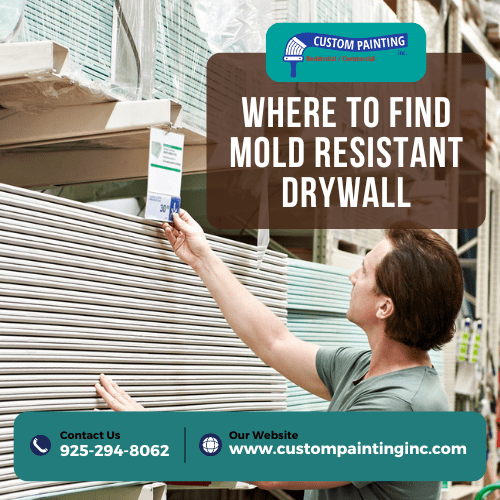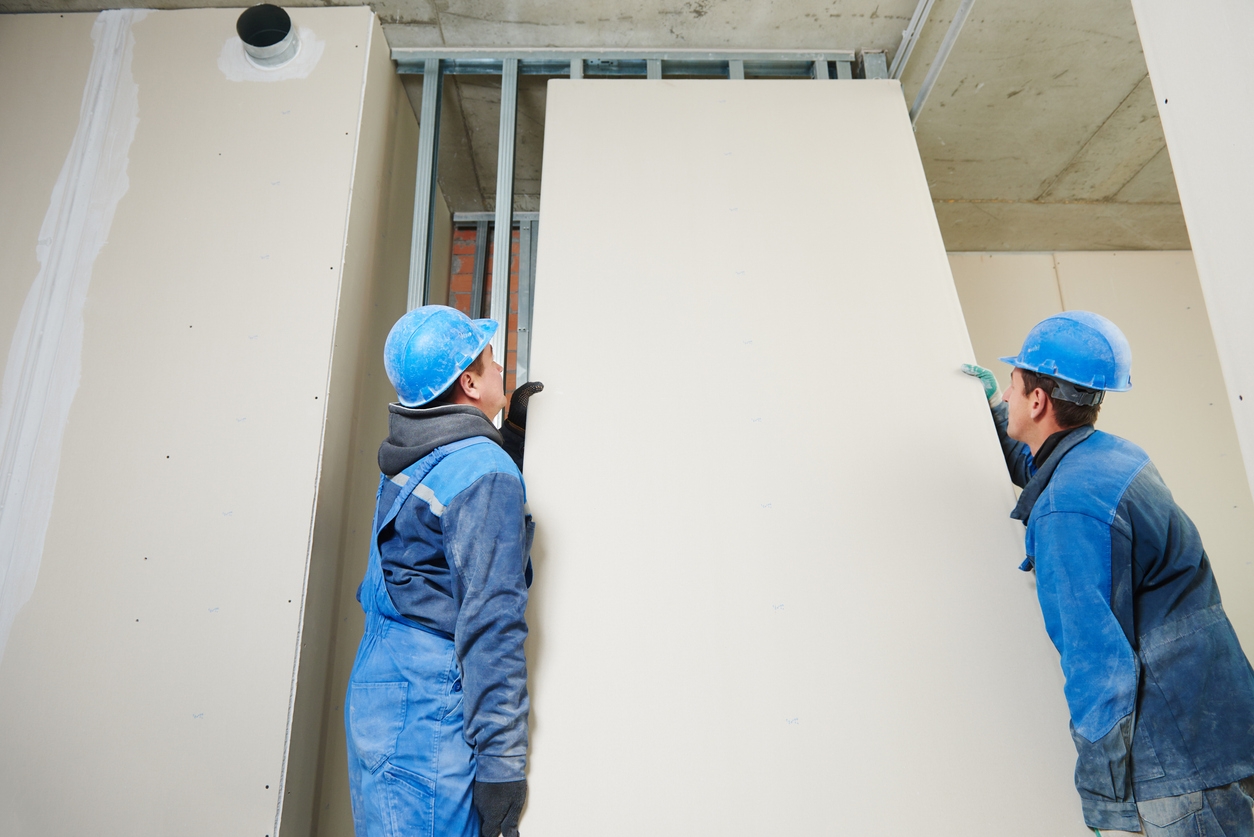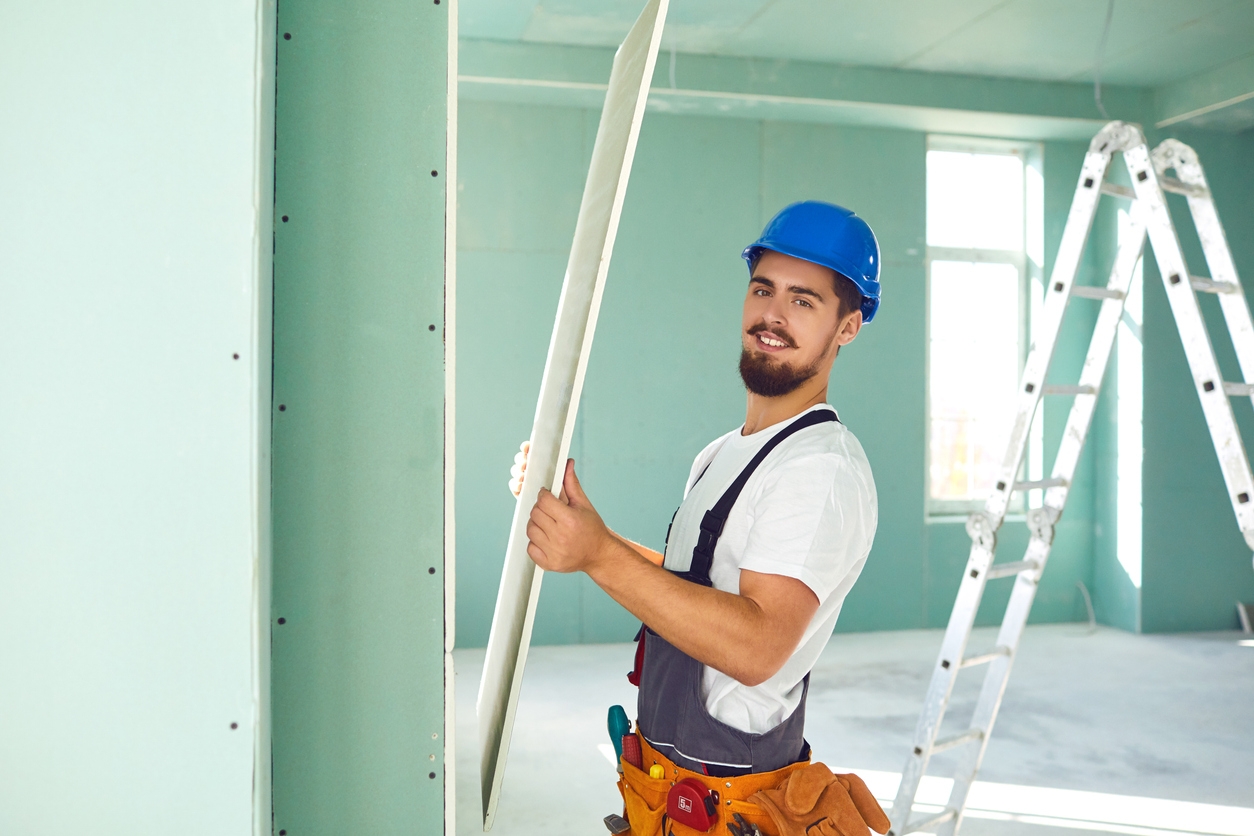Mold-resistant drywall is a specialized building material designed to inhibit the growth of mold and mildew. Unlike standard drywall, it is treated with mold inhibitors and often features a non-paper face to reduce the chances of mold spores taking hold. This makes it an ideal choice for areas exposed to high humidity and moisture. In this article, we’ll discuss more about mold-resistant drywall, including where to find it, its benefits, and the considerations when choosing one.
Understanding Mold Resistant Drywall
Mold-resistant drywall is a specialized product designed to combat mold, which is the most damaging issue in building interiors. This type of drywall is engineered to withstand the high humidity and moisture that typically lead to mold growth, offering a more resilient alternative to standard drywall.
Composition and Features of Mold-resistant Drywall
Mold-resistant drywall is composed of several key elements that distinguish it from regular drywall:
- Core Material: The core of mold-resistant drywall is typically infused with moisture-resistant additives. These additives are designed to repel water, making it more difficult for mold to take hold.
- Facing: Instead of the paper facing found on traditional drywall, mold-resistant drywall often uses fiberglass or other water-resistant materials. This non-paper facing further reduces the risk of mold growth.
- Surface Treatment: Some mold-resistant drywall products come with additional surface treatments or coatings that provide an extra layer of protection against moisture and mold.
These features collectively contribute to the enhanced durability and resistance of mold-resistant drywall, making it a superior choice for high-moisture environments.
Differences from Regular Drywall
The primary differences between mold-resistant drywall and regular drywall lie in their composition and performance:
- Moisture Resistance: Regular drywall is made of a gypsum core sandwiched between two layers of paper. This paper-facing can easily absorb moisture, creating an ideal environment for mold growth. Mold-resistant drywall, with its moisture-resistant core and non-paper facing, significantly reduces the risk of mold.
- Durability: Mold-resistant drywall is designed to withstand high humidity and damp conditions better than regular drywall. This makes it more suitable for areas prone to moisture exposure.
- Maintenance: Due to mold and mildew issues, regular drywall may require more frequent maintenance and replacement in moisture-prone areas. On the other hand, mold-resistant drywall offers longer-lasting protection, reducing the need for repairs and replacements.
Benefits of Using Mold Resistant Drywall in Building Interiors
Incorporating Mold-resistant drywall into building interiors provides several key benefits:
- Improved Indoor Air Quality: Mold growth can significantly degrade indoor air quality, leading to respiratory issues and other health problems. Mold-resistant drywall helps maintain healthier indoor environments by preventing mold.
- Enhanced Durability: Mold-resistant drywall’s ability to withstand moisture makes it a more durable choice, particularly in bathrooms, kitchens, basements, and laundry rooms. This durability translates to fewer repairs and a longer lifespan for walls and ceilings.
- Cost Savings: Although mold-resistant drywall may have a higher upfront cost compared to regular drywall, its long-term benefits, including reduced maintenance and replacement costs, make it a cost-effective investment.
- Peace of Mind: Knowing that your walls and ceilings are protected against mold provides peace of mind, especially in homes and buildings located in humid climates or areas prone to leaks and moisture.
Mold-resistant drywall is an essential material for any construction project aiming to create a healthier, more durable, and low-maintenance living space. Its unique composition and superior performance in moisture-prone areas make it a smart choice for both builders and homeowners.
Where to Find Mold Resistant Drywall
Finding the right materials is crucial when planning a construction or renovation project, especially in moisture-prone areas. Mold-resistant drywall is an essential component for maintaining a healthy and durable building environment. Here are some of the best places to find mold-resistant drywall:
Local Building Supply Stores
Local hardware and building supply stores are often the first stop for many homeowners and contractors looking for construction materials. These stores typically carry a range of drywall products, including mold-resistant options.
- Availability: Most major hardware chains, such as Home Depot, Lowe’s, and Menards, stock Mold-resistant drywall. Additionally, smaller, locally-owned hardware stores may also carry these products, or they can order them upon request.
- Assessing Product Quality: When shopping at a local store, it’s important to check the product labels and specifications. Look for recognized brands and certifications that ensure the drywall meets industry standards for mold resistance. Don’t hesitate to ask store employees for recommendations or product information.
Online Retailers
The convenience of online shopping extends to construction materials, including mold-resistant drywall. Several online platforms offer a wide selection of these products, often with detailed descriptions and customer reviews.
Popular Platforms:
- Amazon: Known for its vast inventory and user reviews, Amazon can be a great place to compare different brands and types of mold-resistant drywall.
- BuildDirect: This platform specializes in building materials and offers various types of drywalls, including mold-resistant options.
- Lowe’s and Home Depot Online: Both these retailers have robust online stores where you can purchase mold-resistant drywall and have it delivered to your location.
When ordering online, always read product descriptions carefully and check for certifications that indicate mold resistance. Look at customer reviews for insights into product quality and performance. Verify the seller’s credibility, especially if purchasing from third-party sellers on platforms like Amazon.
Specialty Suppliers
For specific needs and high-quality products, specialty suppliers who focus on construction materials for wet and damp environments are an excellent option.
- Identifying Specialty Suppliers: Suppliers such as National Gypsum and CertainTeed specialize in drywall and other building materials designed to perform well in moist conditions. These companies often offer technical support and detailed product information.
- Advantages of Purchasing from Specialists: Buying from a specialty supplier ensures you get materials that are specifically designed for your needs. These suppliers often provide better quality control and more extensive warranties compared to general hardware stores. Additionally, they can offer expert advice on the best products for your specific project requirements.
Considerations When Choosing Mold-Resistant Drywall
Selecting the right mold-resistant drywall involves several key considerations to ensure an informed decision. Here’s a guide to help you navigate the quality, pricing, and installation requirements.
Quality and Specifications
When choosing mold-resistant drywall, it’s crucial to look for certain certifications and standards that indicate the product’s quality and effectiveness.
- Certifications: Look for products certified by reputable organizations such as ASTM International. Certifications like ASTM C1396 and ASTM D3273 are specifically related to drywall and mold resistance.
- Product Standards: Ensure the drywall meets industry standards for mold resistance, often indicated by the manufacturer. This includes checking for treatments and materials used in the drywall’s core and facing.
- Brand Reputation: Choose well-known brands that are popular for their quality and performance in moisture-resistant applications.
Price Comparisons
Understanding the cost implications is important when choosing mold-resistant drywall, as prices can vary significantly.
- Price Range: Mold-resistant drywall typically costs more than standard drywall due to the additional materials and treatments used. On average, mold-resistant drywall can range from $10 to $15 per sheet, compared to $6 to $10 per sheet for regular drywall.
- Cost-Benefit Analysis: Although the initial cost is higher, Mold-resistant drywall offers long-term savings by reducing the likelihood of mold-related damage, maintenance, and health issues. The investment in mold-resistant drywall is especially worthwhile in areas prone to moisture.
Installation Requirements
Installing mold-resistant drywall involves some specific procedures and environmental considerations to ensure optimal performance.
- Handling and Storage: Keep mold-resistant drywall in a dry environment before installation to prevent any premature exposure to moisture. Handle the sheets carefully to avoid damaging the protective facing.
- Cutting and Fastening: Use appropriate cutting tools and fasteners recommended by the manufacturer. Ensure that the cut edges are sealed if necessary to maintain the integrity of the mold resistance.
- Environmental Considerations: Maintain proper ventilation during installation to control humidity levels. In high-moisture areas, such as bathrooms, consider using mold-resistant joint compound and tape to complement the drywall’s properties.
- Additional Measures: In some cases, applying a mold-resistant primer or paint after installation can provide extra protection. Ensure all seams and joints are properly sealed to prevent moisture ingress.
When choosing mold-resistant drywall, focus on products that meet industry certifications and standards, understand the cost implications, and follow specific installation guidelines. By taking these considerations into account, you can effectively safeguard your building interiors against mold and ensure a healthier, more durable environment.
Conclusion
Choosing the right mold-resistant drywall is essential for maintaining a healthy and durable living space, especially in moisture-prone areas. You can effectively protect your home from mold-related issues by focusing on quality certifications, understanding the cost differences, and following proper installation guidelines. For expert advice and professional installation, contact Custom Painting, Inc. at 925-294-8062 or fill out the contact form on our website.




